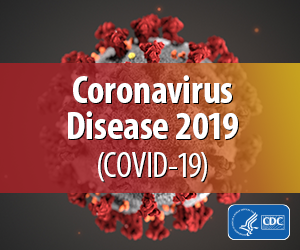
We have been closely monitoring the latest developments and impacts of the coronavirus. We want our members to know the facts. Your health and well-being are top of mind.
We will continue to keep you informed regarding any changes to upcoming NGWA conferences and educational events via email and our website.
How does COVID-19 spread?
The virus that causes COVID-19 probably emerged from an animal source, but is now spreading from person to person. The virus is thought to spread mainly between people who are in close contact with one another (within about six feet) through respiratory droplets produced when an infected person coughs or sneezes. It also may be possible that a person can get COVID-19 by touching a surface or object that has the virus on it and then touching their own mouth, nose, or possibly their eyes, but this is not thought to be the main way the virus spreads. Learn what is known about the spread of newly emerged coronaviruses at the CDC website.
What are the symptoms of COVID-19?
Patients with COVID-19 have had mild to severe respiratory illness with symptoms of:
- Fever
- Cough
- Shortness of breath.
How can I help protect myself?
People can help protect themselves from respiratory illness with everyday preventive actions:
- Avoid close contact with people who are sick.
- Avoid touching your eyes, nose, and mouth with unwashed hands.
Wash your hands often with soap and water for at least 20 seconds. Use an alcohol-based hand sanitizer that contains at least 60 percent alcohol if soap and water are not available.
We encourage you to read more at https://www.cdc.gov/COVID19.
Additional resources
Water Well Journal®’s latest Safety Matters article deals with this issue — “What You Need to Know About the Coronavirus.”
The latest situation summary updates are available on CDC’s web page Coronavirus Disease 2019 (COVID-19).
Employers can also refer to OSHA’s “Guidance on Preparing Workplaces for an Influenza Pandemic”, which provides helpful tips on monitoring public health crises in general.
OSHA also has resources directly related to the coronavirus.